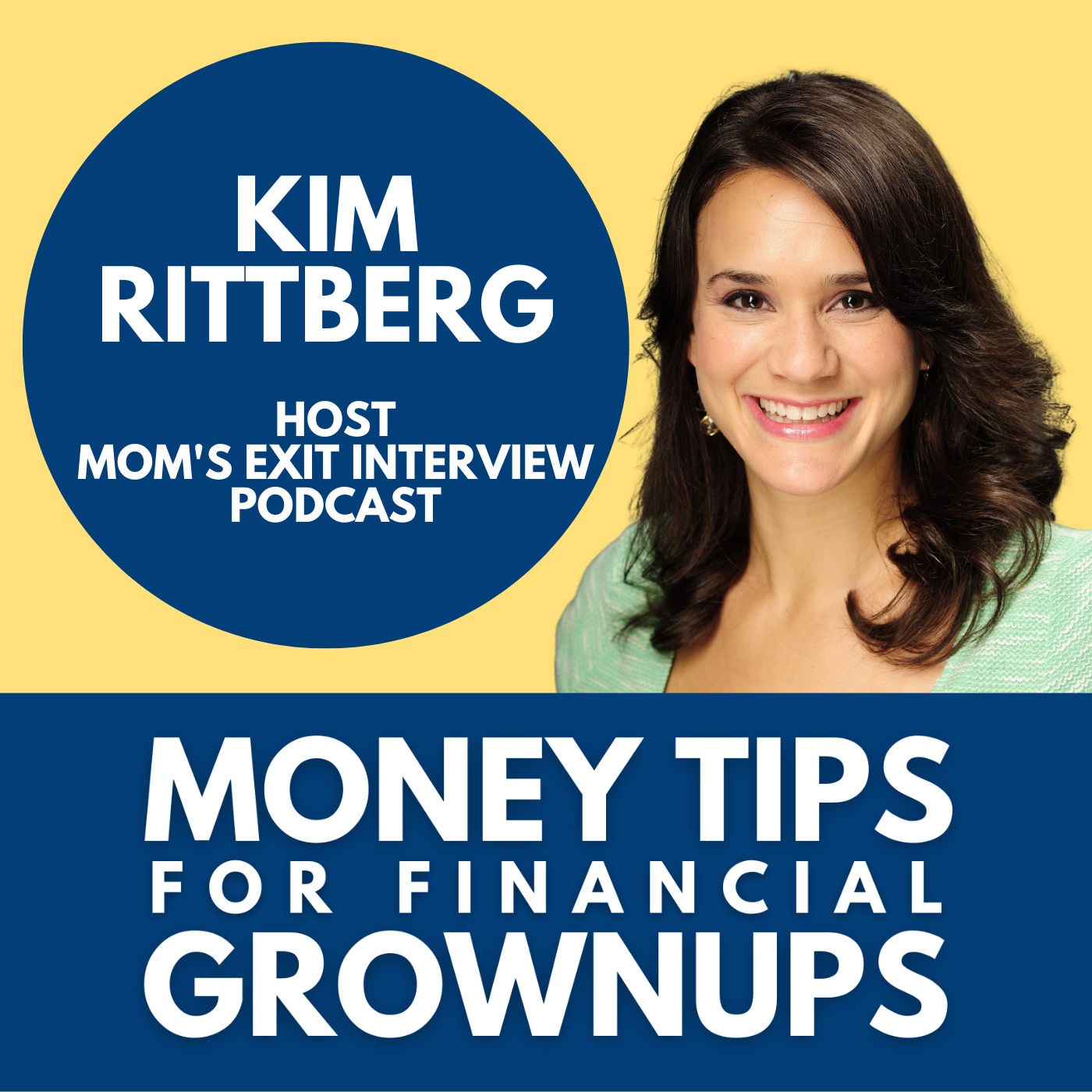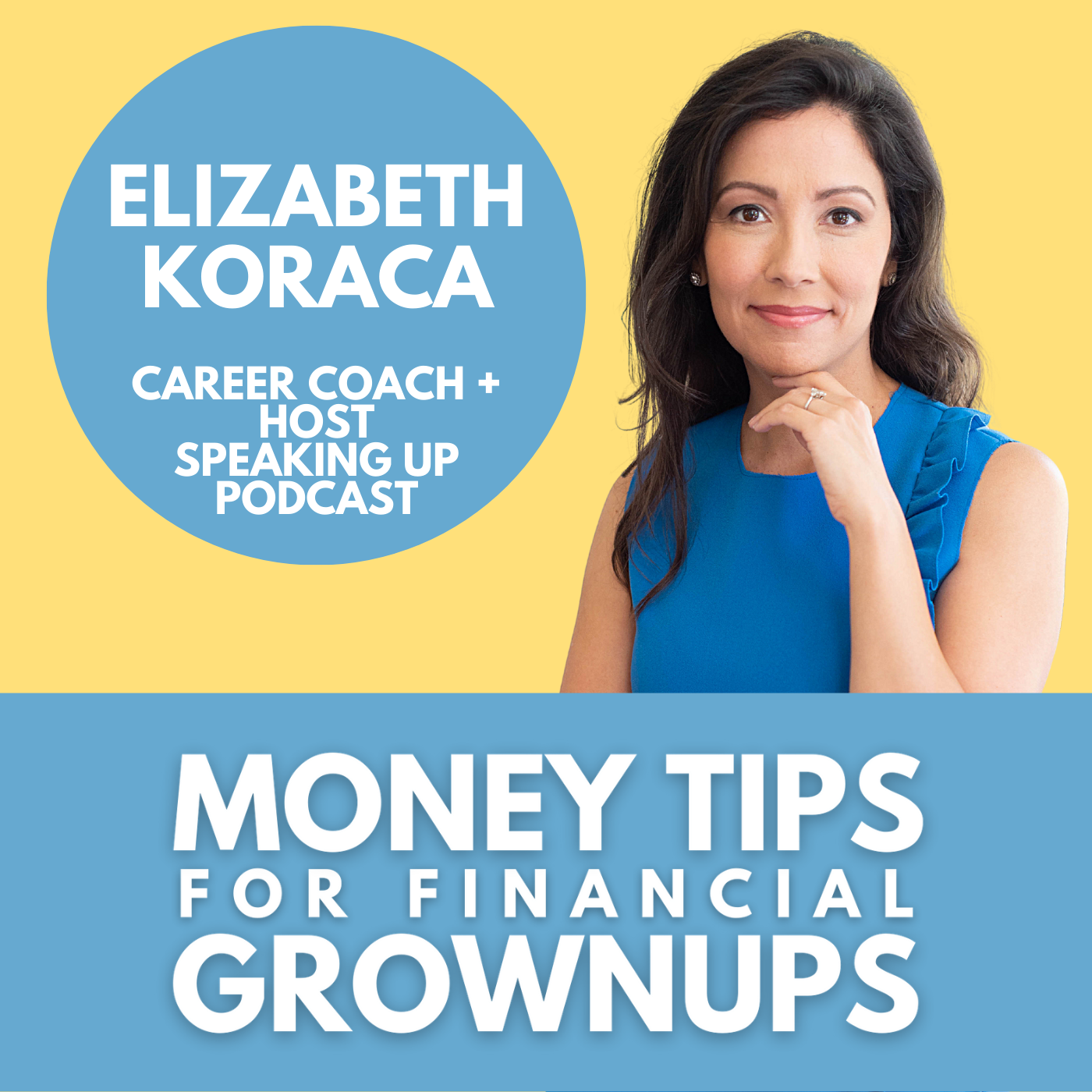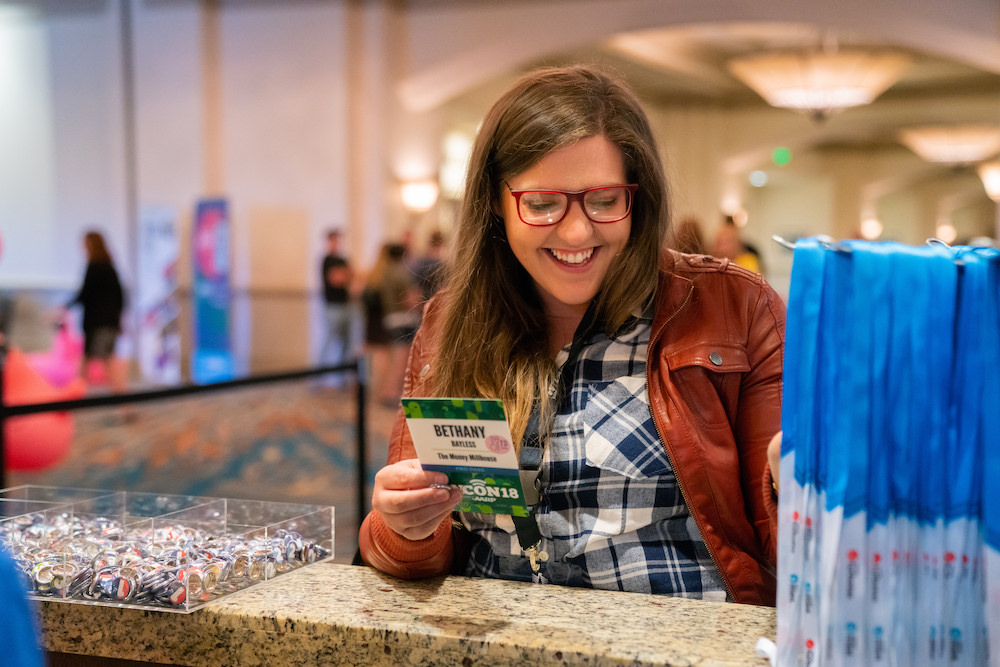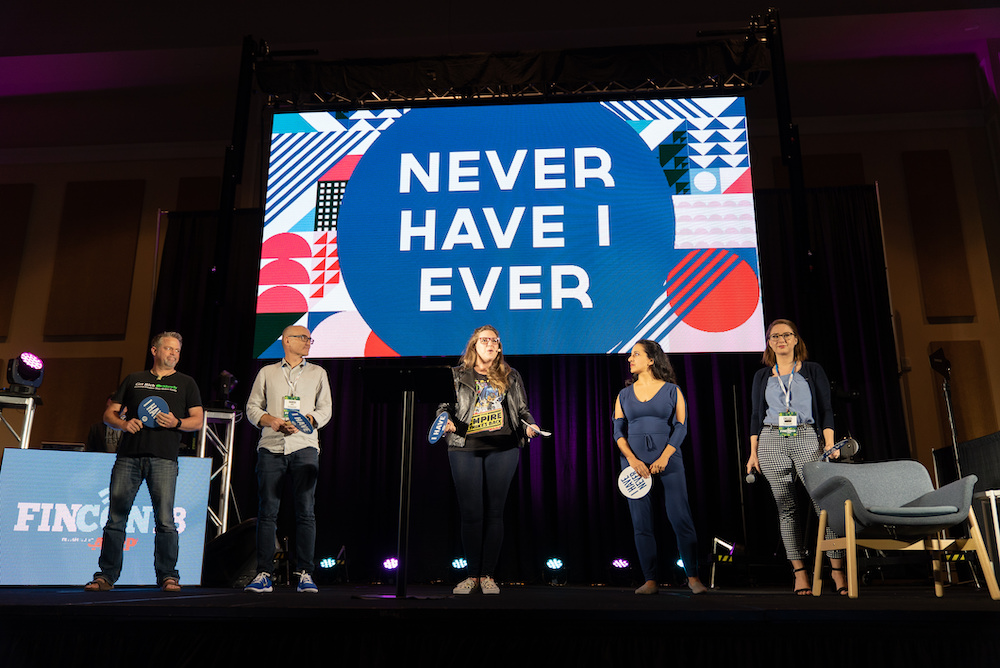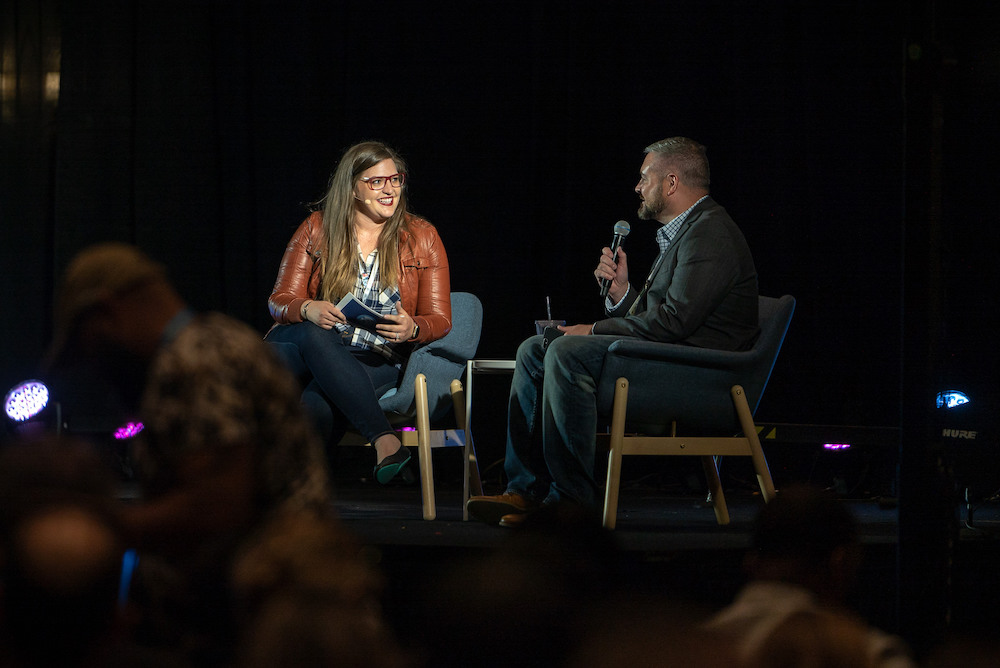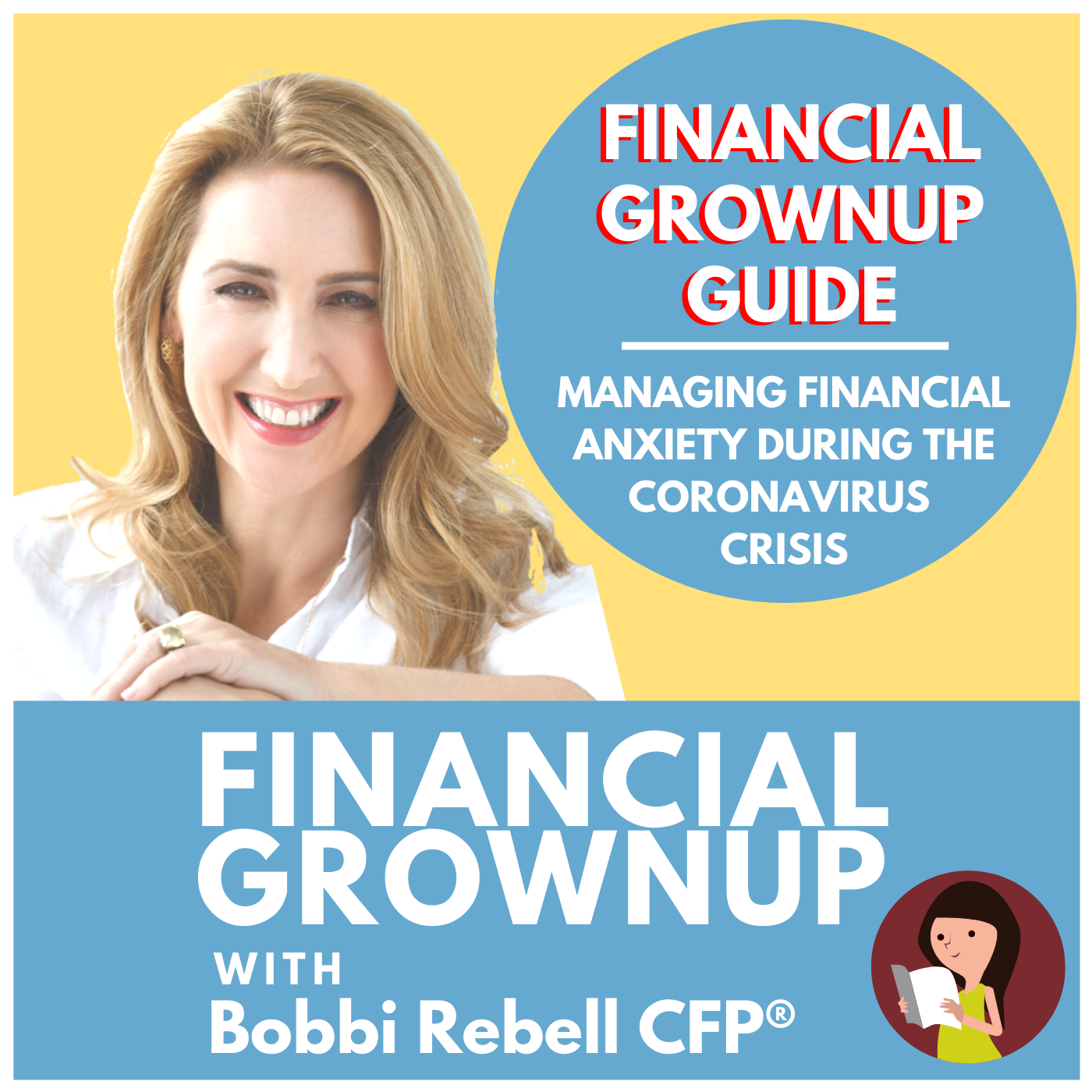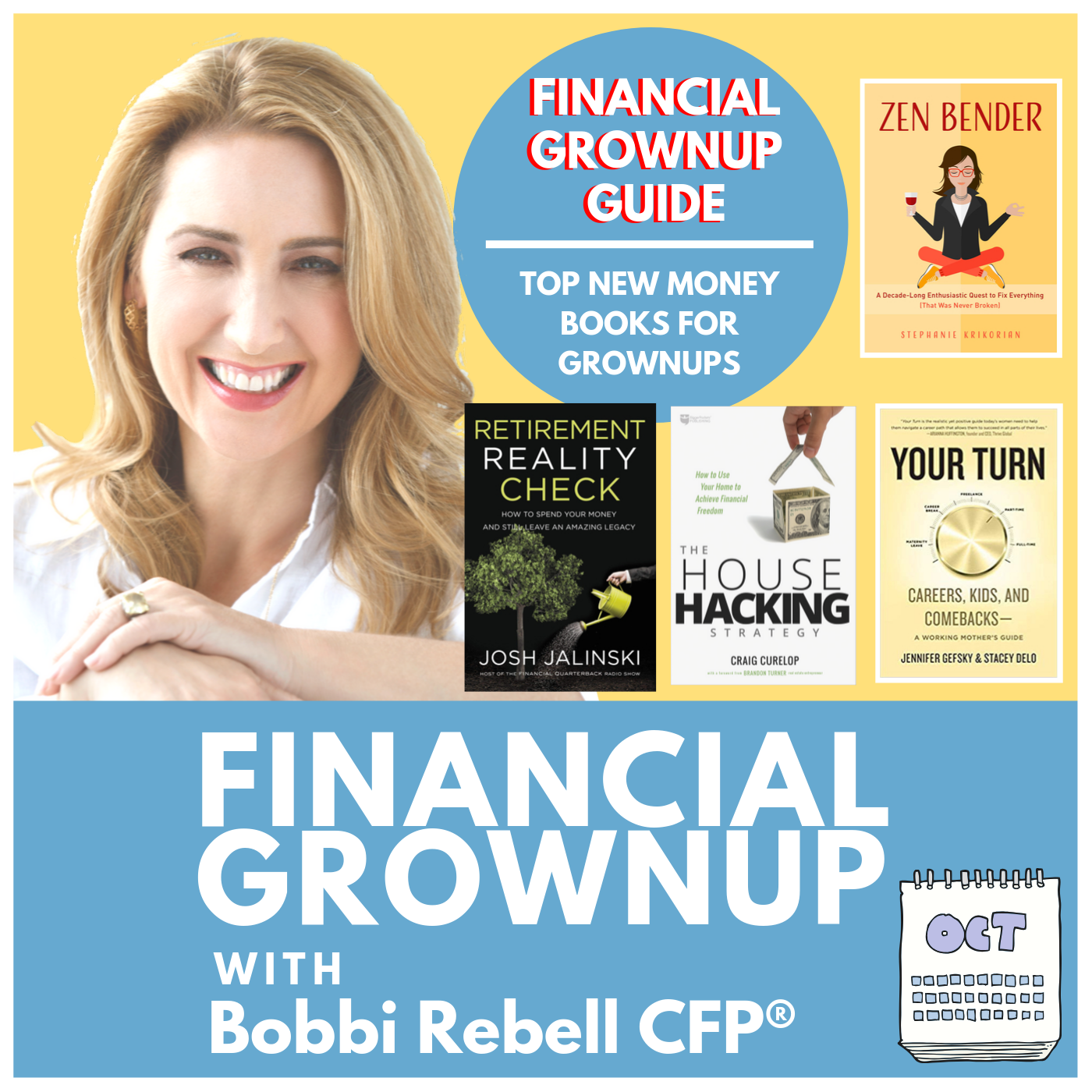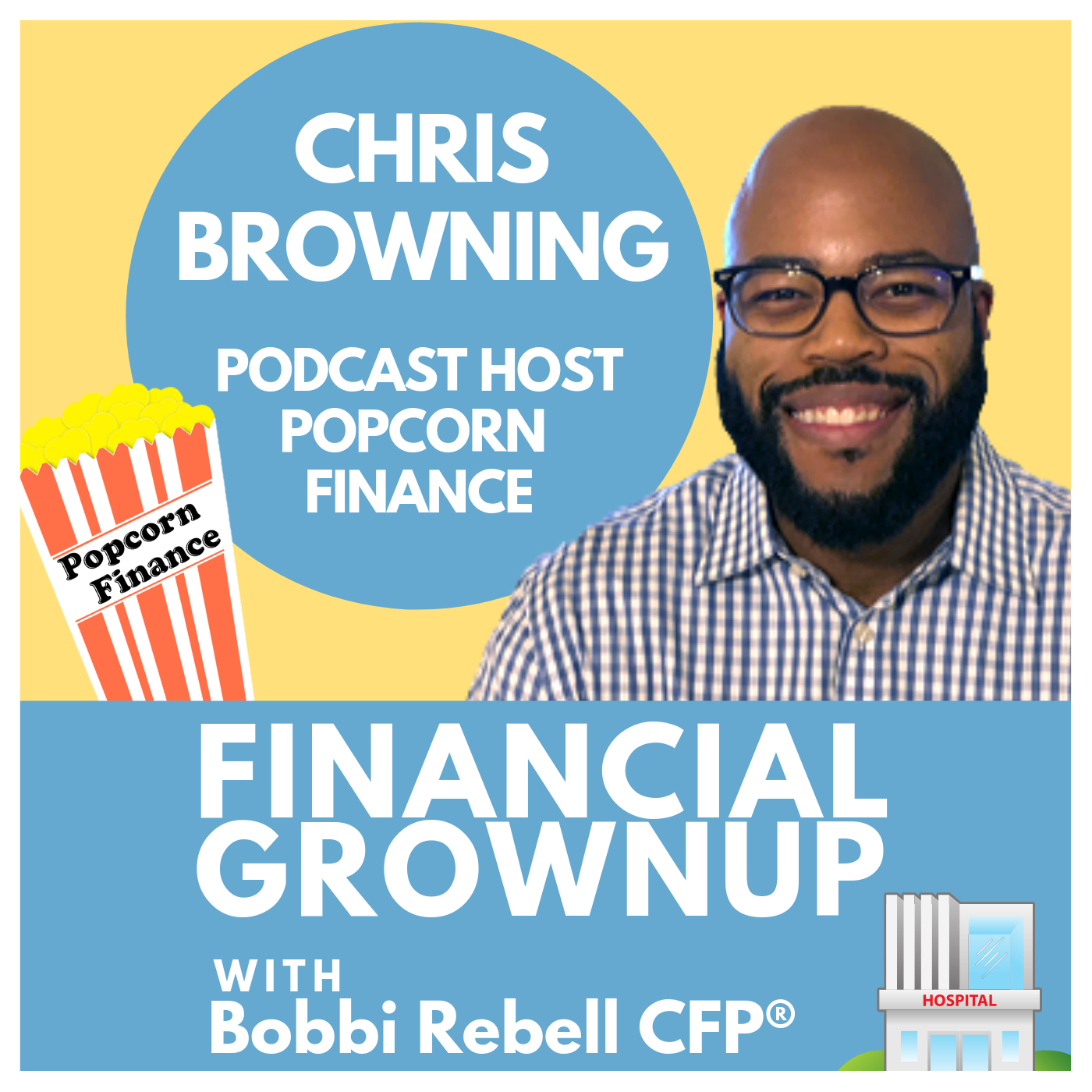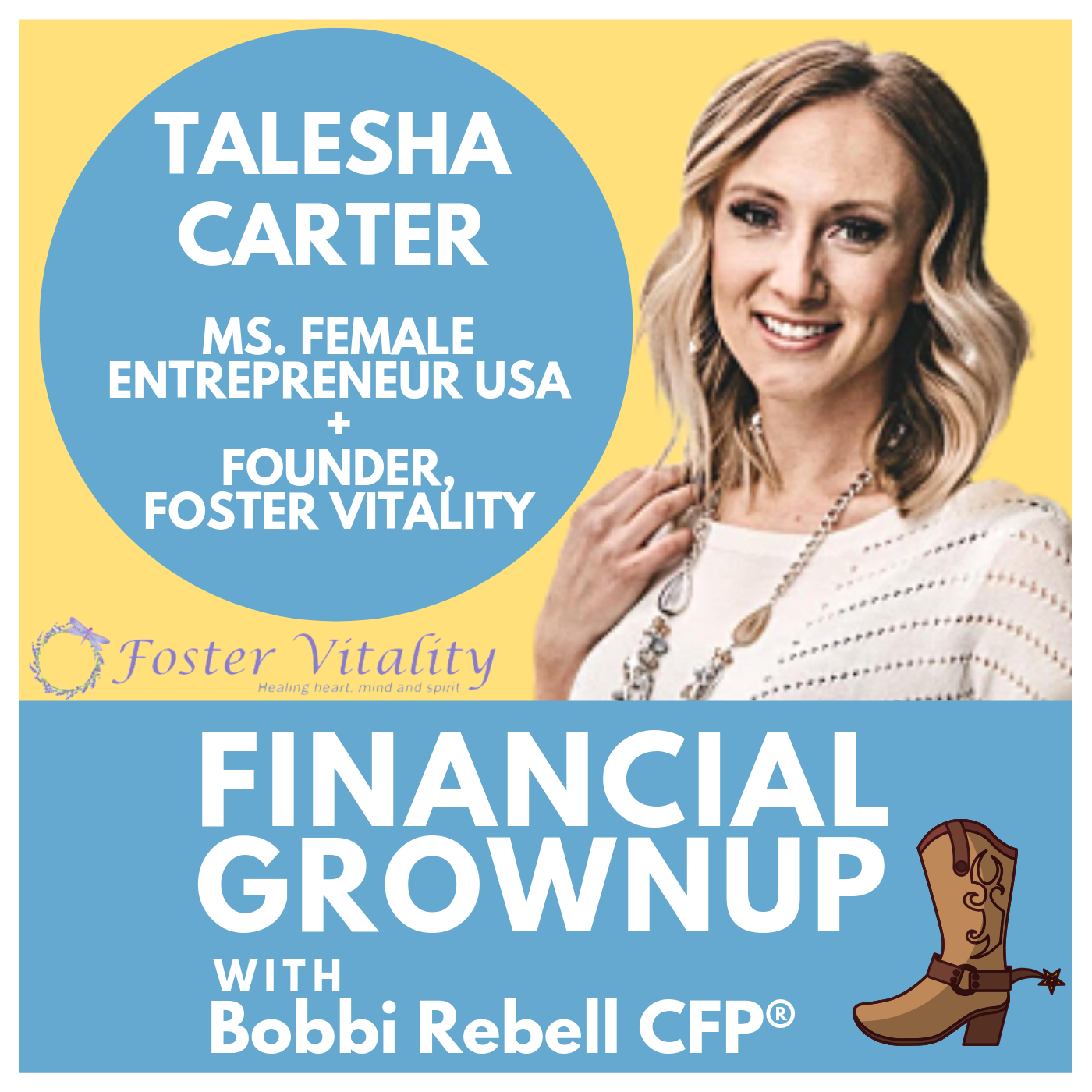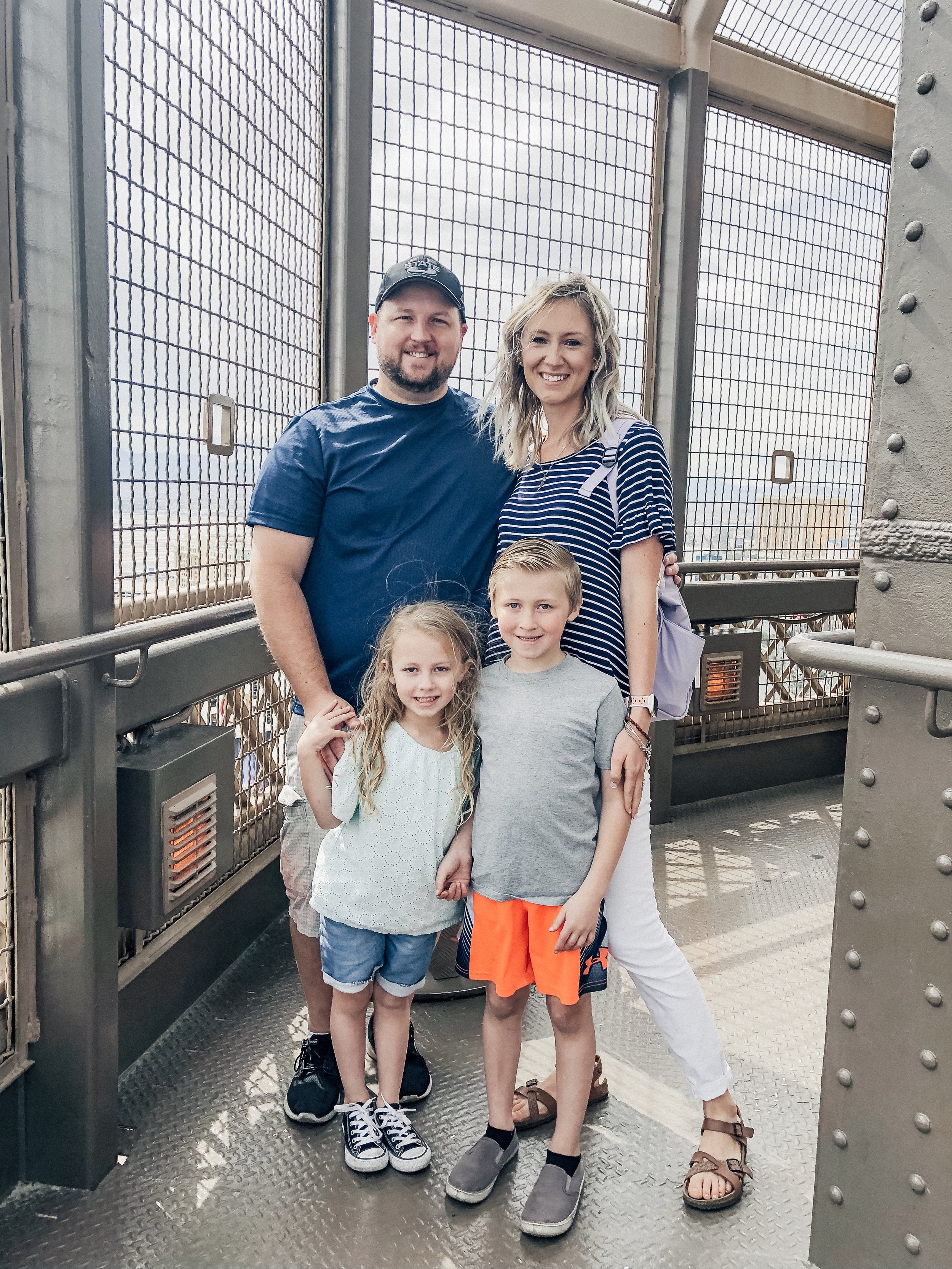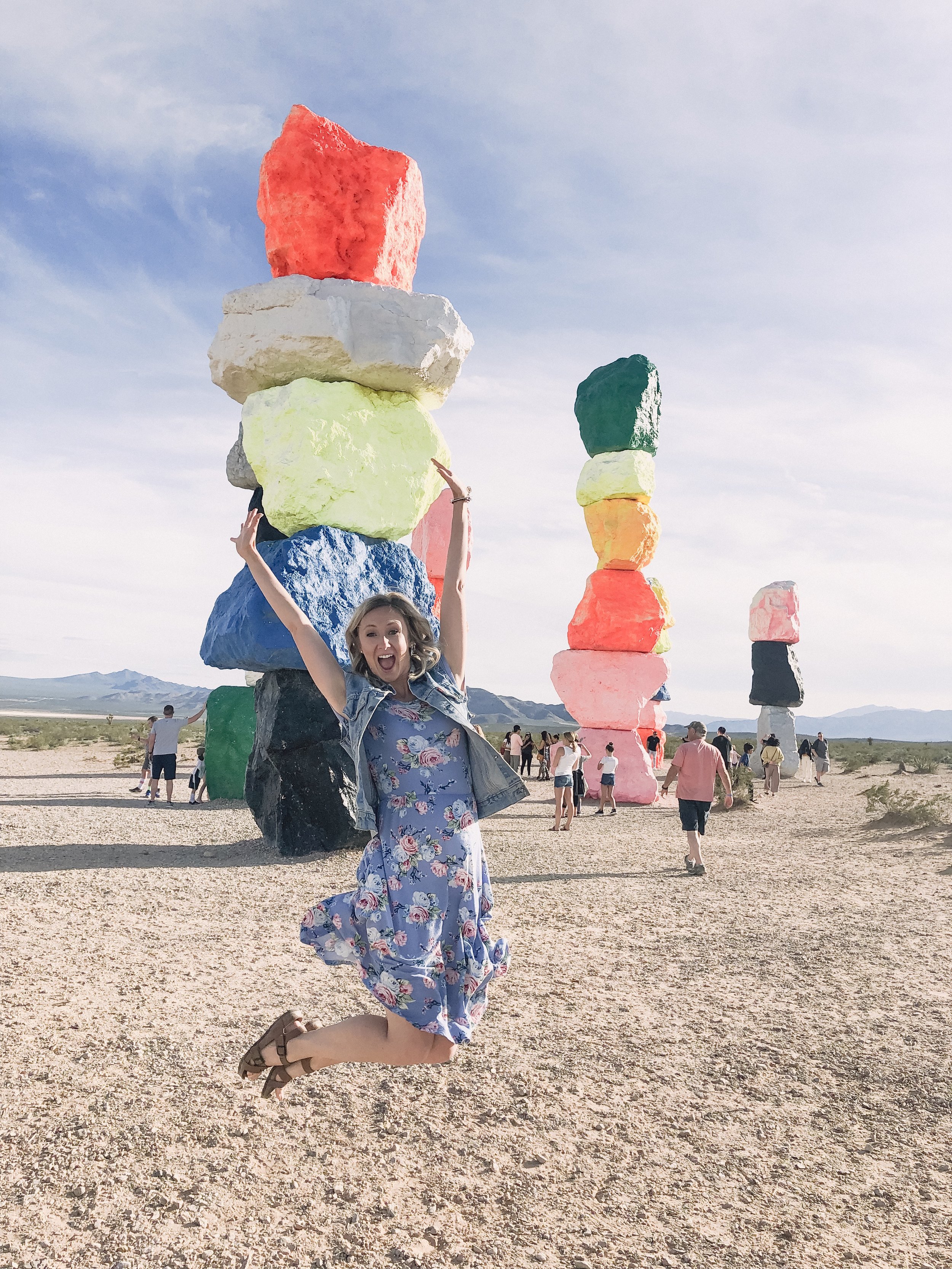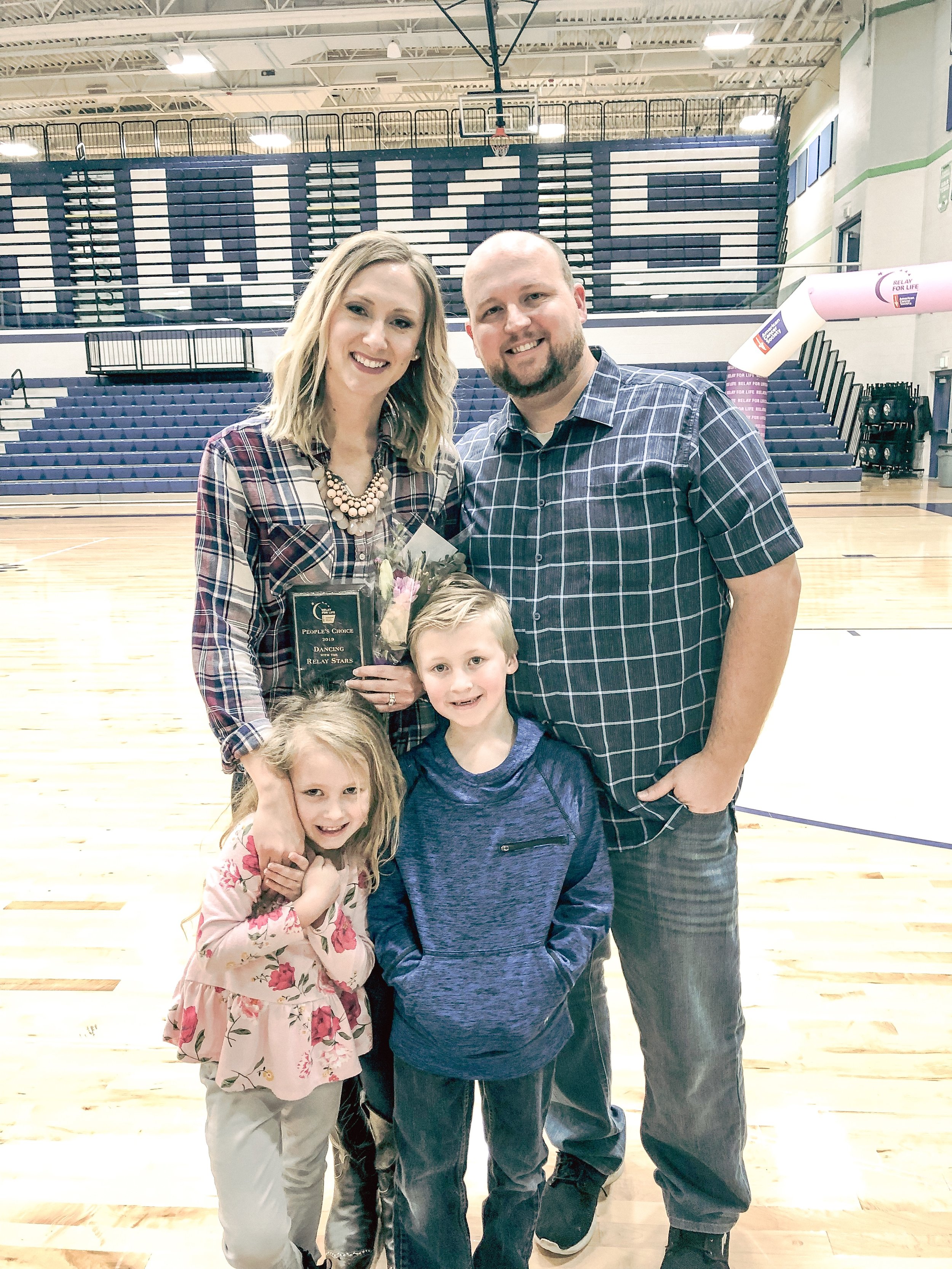Media all-star Kim Rittberg gets us ready to exit our jobs the right way, and previews her new podcast: Mom’s Exit Interview.
Follow Kim Rittberg!
Instagram - @kimrittberg
Facebook - @kimrittberg
Twitter - @kimrittberg
LinkedIn - @kimrittberg
Website - http://kimrittberg.com
Follow Bobbi!
Instagram - @bobbirebell1
Twitter- @bobbirebell
LinkedIn- Bobbi Rebell
Website- http://www.bobbirebell.com
Buy my newest book - Launching Financial Grownups
Did you enjoy the show? We would love your support!
Leave a review on Apple Podcasts or wherever you listen to podcasts. We love reading what our listeners think of the show!
Subscribe to the podcast, so you never miss an episode.
Share the podcast with your family, friends, and co-workers.
Tag me on Instagram @bobbirebell1 and you’ll automatically be entered to win books by our favorite guests and merch from our Grownup Gear shop.
Full Transcript:
Bobbi Rebell:
Hey, Grownup friends. A big thank you to so many of you that have already bought my new book, Launching Financial Grownups: Live Your Richest Life By Helping Your Almost Adults Kids Become Everyday Money Smart. This book was not easy to write because I had to get honest with myself about what was working with my teen and young adult kids and what was not working. And I also had to be prepared to share it with all of you. So, first of all, thank you for your support and your wonderful responses to it. There's definitely some things in there that you may not have been expecting to hear.
Bobbi Rebell:
By the way, I got a lot of help from my money expert friends and also financial therapists and parenting experts. I am really happy with how Launching Financial Grownups came out, even though it really was hard to be, like I said, that honest, and it was a lot of work, but I really loved doing it. And I'm really happy with how it came out.
Bobbi Rebell:
On that note, if you have not already, please pick up a copy of Launching Financial Grownups today. After you do, please share it on social media. Please leave a review on Amazon. Those reviews are super important because the algorithm picks up on them and that can make the book a lot more visible to more people. So I truly appreciate it. And I really also appreciate all of your support.
Kim Rittberg:
Figure out number one, what is the life you want? What should that life look like? Are you looking to get more time to yourself, to spend with your kids? Are you looking for more fulfillment? Are you looking for a more flexible schedule? Get super clear on that answer before you leave, like don't slam any door until you know where you want to go.
Bobbi Rebell:
You're listening to Money Tips for Financial Grownups with me, certified financial planner, Bobbi Rebell, author of Launching Financial Grownups because you know what? Grownup life is really hard, but together we got this.
Bobbi Rebell:
Hey grownups. Quick ask, before we get into today's topic. I need your help big time. My book Launching Financial Grownups is out and I need your help to get this information to more grownups who can use the advice from my amazing experts in the book. As you know, I wrote Launching Financial Grownups because I was struggling and the information in this book has been everything to me. If you have not already, please pick up a copy. Please get one for a friend or a relative. And also this is so important, please take just a couple of minutes to leave a review on Amazon. We will have a link for that in the show notes. And if you have a group that you think would benefit from having me come to speak to them in person or virtually, get in touch. It's super easy. On my website, just hit the button on the top right that says Work with Bobbi and we can get in touch.
Bobbi Rebell:
Okay. Now to this episode's topic. Are you curious about the Great Resignation? Are you reading about some scary stuff in the job market like rescinded job offers or people that regret quitting? Maybe you are already in the thick of it, but how do we make sure it doesn't turn into the great regret, whatever we're doing. We have you covered with the most amazing guest Kim Rittberg. Kim Rittberg has had the most phenomenal career in the media business with stints everywhere, from Netflix to Fox and PopSugar. She even launched Us Weekly Television.
Bobbi Rebell:
But then she had that aha moment. You probably have had it too if you're listening to this, and realized she wanted more control. And if we're being honest, more upside potential by stepping out on her own.
Bobbi Rebell:
But of course it's never that simple. We grownups know it never is. I've shared my own three year exit strategy from when I left my job as a business news anchor at Thompson Reuters. But what if you don't want to wait three years or you just can't, and what if you don't know where you want to go, just that it's not where you are right now? Kim and I talk about all of that and then get very specific in our interview with what you need to know before you make your exit, including, of course, the financial things we need to be putting in place. And my favorite, how do you know where to invest in your business as you are building it? Where do you put your resources? It's often limited. Where do you outsource? And how do you even find the right people to help you? It's a lot. So listen carefully to Kim. She gets it and she has incredible advice. Here is Kim Rittberg.
Bobbi Rebell:
Kim Rittberg, you are a financial grownup. Welcome to the podcast.
Kim Rittberg:
Thank you so much for calling me a grownup.
Bobbi Rebell:
You are such a grownup. We've been gabbing a lot while we've been getting set up because you have a new podcast that has just debuting. It is called Mom's Exit Interview. And I asked you to come on to talk about exit strategies when we want to make big changes in our life. But first tell us about Mom's Exit Interview.
Kim Rittberg:
Yeah, so Mom's Exit Interview is pretty much a resource for moms to thrive when they've ditched the 9:00 to 5:00. Because people don't realize you think that there's stay at home mom, and then 90 hour work weeks on the corporate ladder. There's so much in between. And this podcast is an amazing resource. So every single episode, there's a mom, a real mom with an inspirational story where she's carving her own path and an expert with tips to guide you. So it's really meant to be that inspiration and action paired together.
Kim Rittberg:
And the reason I came up with it was sort of my baby. I had worked in media for about 10 years in TV. I launched the video unit for Us Weekly, like complete dream job. Like I made it. I was like, I made it. I'm such a big deal. It was awesome. I ran an 18 person team. I had my first baby, my baby, actual baby, and Us Weekly, my other baby. But what happened was when I being pregnant with my second, we were required, and I was in the hospital room having my second baby looking through resumes of all the people quitting, looking around at all the executives who were getting fired. I still had my job, but I thought, "Whew, I have no control." And so that really made me think I got to rethink my career. I need to take back control. If this is what success means, this is not the version of success I want.
Bobbi Rebell:
And it's interesting because, so your podcast is about the mom experience, but the truth is that, and that is often sort of the tipping point for making a change is when you have a change in terms of your family dynamics, whatever that may be, this applies to anyone. Right now, we're going through what many people are referring to as the Great Resignation because so many of us are now rethinking where we want to be, what's going on around us. I mean, you weren't necessarily being forced to make a change, but you had this aha moment. Tell us about what you think about the broader picture of what's going on these days in society, because that had to have inspired this new podcast.
Kim Rittberg:
Absolutely. So I, funny enough, right before the pandemic is when I decided to work for myself. When I tell people about this idea, dads, millennials, all people are like, "What a great idea. Why is it just for moms?" I'm like the idea is not just for moms. It's really for people who want to take control. And I think you're seeing that entrepreneurial, grab the reigns mentality, strike more people. But I do think that parents were feeling it more during the pandemic because all of the things that make a parent feel stretched thin before really rose to the surface in a very visceral way. Never before have parents had to homeschool and work at the same time. It's just it was a banana situation, but those little pieces had been happening for a long, long time.
Bobbi Rebell:
Assuming that we have a choice because sometimes people have to exit what they're doing without a choice, but if we have a choice, what things should people do beforehand to be most ready to have an exit?
Kim Rittberg:
That's a great question. Because on the show, I've conducted tens of hours of interviews with real moms. And we have surveys of hundreds of moms that filled out this survey for the podcast about what they're looking for. And people quit with a plan, without a plan, but I do think there are some general guardrails in place. So in my experience, I left Us Weekly, I knew I wanted to work for myself. I actually didn't have the courage or confidence to do it for another two years.
Kim Rittberg:
So a lot of times I think people have those sort of mental blocks of, can I do it? Is this really the right move? And then there's the tangible things. Do you have enough money? Do you have insurance or does your partner have insurance?
Kim Rittberg:
So some of the things to prepare are A, if you're going to exit, what are you entering? Do you want to be an entrepreneur and grow a huge company? Do you want to be a part-time worker? Do you want to be a consultant? But figure out number one, what is the life you want? What should that life look like? Are you looking to get more time to yourself, to spend with your kids? Are you looking for more fulfillment? Are you looking for a more flexible schedule? Get super clear on that answer before you leave, like don't slam any door until you know where you want to go and it doesn't have to be career A. It doesn't have to be job B, but you should have your priorities really clear because otherwise you're going to find yourself going to the right, going to the left, not really knowing which direction to really lock in on. So get clear on what you want. Your priorities are the top thing.
Kim Rittberg:
Secondly, figure out your financial situation. It is different for everyone. Some people have a lot of savings. Perhaps they have a partner with insurance and childcare. That makes it obviously a clearer path to take an exit. So figure that out. You obviously need to cover housing, food, childcare, but think about which of those things are temporary and which are permanent.
Kim Rittberg:
One of the other things I think is super helpful that I've learned from the podcast, I was talking to Gretchen Rubin, the Happiness Guru, who is amazing. She's amazing. I'm like, I love you. I also love you, Bobbi. We were talking about chapters and how life can be in chapters. So another helpful framework is you're slamming a door. You didn't lock the door with a bolt and never go back. You do always have the opportunity to reenter whatever it is you want to. You don't have to go back, but you can go right, you can go left, you can go forward. So I think the framework of knowing that an exit could be an entrance to something else and you get to decide what that is. A lot of people think of it's that old, famous video of that Jet Blue person, this flight attendant who jumped out the window and quit, and storming out of your job and lighting it on fire. It doesn't have to be that. There are a lot of ways to exit and enter something that's really satisfying.
Bobbi Rebell:
How do you balance the amount of planning you do with the actual doing? Because I have had friends that say, "I'm going to make a move," and then it doesn't happen. Or you also, sometimes people, as you just alluded to, take the leap and it's so dramatic and I'm just going to walk in and quit. Maybe they haven't thought it out well. So how do you kind of know what the balance is? And I say that, and I will talk about this on your podcast, I really took three years before I exited my corporate job. I did a lot of planning, but it was very specific with a timeline and everything. How do you balance that? Because you can spend forever planning.
Kim Rittberg:
You can definitely spend forever planning. I 100% agree with you. I spent two years knowing I wanted to work for myself, but not really understanding the financials of that. And finally, one day I said, "I'm going to do it. I'm going to network. I'm just going to see what happens." And I've had two and a half years of making good money doing some of the best work of my life, getting awards. You have to be clear in what you want. I think that clarity has to come.
Kim Rittberg:
Some of the tips that I have learned through the podcast is generally some of the ways that you can figure out that next step, if you have the time, obviously it's very hard to find the time, start doing that next thing as a side hustle. See if you like it, see if the money makes sense. See if there's clients out there, are people wanting what you're selling? So that's one way is to dip your toe in as a side hustle. The other thing is to make sure you have that financial cushion to make sure that you're not just quitting your job and then you feel unemployed. You don't want to feel unemployed. You want to feel empowered.
Kim Rittberg:
And the actual timeline, some people plan a business for years before they launch and other people spend six months, they make their plan. So getting the resources, like tapping into people. Getting your mentors, getting your coaches, doing that business plan, talking it out, and getting on the same page with your spouse or partner if you have one. That's another big thing is if you're going to make a big move, your whole house has to be aligned to that move, or it's going to be very hard for you to handle that. As you know, financial stress is the top stress for partners. So if you are going to make a move, your whole house has to be okay with that.
Bobbi Rebell:
Absolutely. And it is important to understand the difference between procrastination and planning, and understanding the balance of that. Once you make this leap and you do exit, Kim, one of the things that I worry about with people because I've been approached, fortunately, I don't think I've been scammed yet, but there's a lot of people... And it's not just scammed. There's a lot of people that can actually legitimately help you. That can really help you clarify, especially if you're a little bit lost, they can clarify with you what you want to be doing, because it is complicated. There are things that might be part of your business that are marketing and things that are revenue producing. And you have to balance that because some things can be so much fun, but they will never produce income. And if you want to have income for your family, you have to really have an understanding of that. How do you figure out who to bring in to help you and what kind of investments to make? Especially if maybe it's early and you don't have the cash flow to just pay for it out of your business, or if you need the cash flow to be supporting your family.
Kim Rittberg:
That's a great question. And I think there are several different points of view on this. Some people are in the camp of delegate everything, and delegate everything even before you're ready to. So when I was running a big company, I was like, "I'm not going to do this. I'm not going to do that. I'm going to delegate." Now that I run my own company, I do delegate, but I wait till I feel like I really need it and before I'm at that breaking point, then I hire help for that.
Kim Rittberg:
But in terms of bringing on coaches and all of that, there are a lot of people out there who would like to make money off of you. That's across the world. You go into a store, everyone's trying to sell you something, but figure out who you need to help you get to the next level. For some people, it's a business coach. You actually need to sit down and have your business plan. So on our podcast, I have this entrepreneur media business development consultant, and he gives you tips on how to find clients, how to price your business, how to make a business plan. If you don't know how to do those things, that's the right type of person to bring on. For other people, it's a graphic designer or it's a branding consultant because I think that when you're ready to take that next step, you need to have a brand identity and you need to really like have a good brand presence. Your socials, your site, all that stuff, but you have to be able to separate it.
Kim Rittberg:
And I think there are also a lot of people on social media, the idea that you have to be on social all the time, promoting yourself, and then you end up spending all your time there. You have to really think in your mind, balance your time between what is marketing and what is branding, and what is necessary, and where am I making my money?
Kim Rittberg:
So I had a huge year, my very first year actually working for myself. I had a huge year. I was barely on social media. My inbound contacts, all of my work was inbound. All of my clients were inbound. There were people I had met or contacts of contacts, and I did it through networking. So I think it's very important because a lot of people sell products or services that are related to marketing yourself. And I think social media marketing is super important, but you have to remember, at the end of the day, you got your checking and your savings account. How much money are you making? Are you bringing in money? Are these people who are helping you, are they going to help you bring in money? So I think you need to do that. I personally am a big fan of like word of mouth, figuring out are they legit, checking online sites, Better Business Bureau, all the things like that. I mean, a lot of coaches and people I brought on have been word of mouth. They have been recommendations from other business owners.
Bobbi Rebell:
Kim, you are such a gem. I want to remind everyone that beyond just rewinding this, I do provide transcripts because you're going to want to literally underline and circle everything that Kim has said. This is a tremendous resource. And we're so excited for your new podcast, Mom's Exit Interview. Tell us more about where we can find out more about you, and I know it's going to be everywhere the podcast. So the podcast is everywhere that you listen, make sure to follow and subscribe. I guess we say we have to say follow now, not to subscribe, but where can people find Kim Rittberg?
Kim Rittberg:
Thank you so much. So kimrittberg.com, R-I-T-T-B-E-R-G, is all things me and Mom's Exit Interview is there. And as a part of my business, I do media training and video content strategy. So I'm laughing. I'm like, "Don't hire coaches, except for me." I'm just kidding. But all of my information is that KimRittberg.com and this was so fun. And I really, my goal for the podcast is to be a resource for people to create a more fulfilling life. And so if I'm doing, that's awesome. And thank you so much for having me.
Bobbi Rebell:
Hey, grownups. I love how Kim gets real at the end of the interview, especially understanding that we have to focus not just on doing what we love, but understanding what will actually bring in revenue. It is something I'm trying to focus on more these days as well.
Bobbi Rebell:
Make sure you go to my website. It's just my name, BobbiRebell.com, to get the show notes, with links to learn more about Kim's business and her new podcast, Mom's Exit Interview. While you are there, make sure to subscribe to my newsletter. There's a link in the show notes and on my website for that. We send the newsletter out every couple of weeks with articles and helpful information that can help all of us be financial grownups and it is free.
Bobbi Rebell:
Be in touch. I'm now on TikTok where I'm still figuring it out. Please help me. Give me ideas, give me suggestions, or any feedback in the comments on TikTok. So far, everyone seems to like clips of me on local news sharing advice on saving money and paying down debt and other grownup money skills. You can also find me super easy under my name, just Bobbi Rebell. Same goes for Twitter. And on Instagram, I am @BobbiRebel1. That's Bobbi Rebell with the number one.
Bobbi Rebell:
And I also want to be helpful to all of you in your business ventures. I would love to come speak at your company or perhaps at a client event. I have virtual and in person programs available on topics, including of course, Launching Financial Grownups. I talk a lot about intergenerational wealth and of course, how to maximize work life benefits. Links to more info on that in the show notes as well.
Bobbi Rebell:
Go listen and subscribe to Kim Rittberg's new podcast, Mom's Exit Interview, and big thanks to Kim for helping us all be financial grownups.
Bobbi Rebell:
Money Tips for Financial Grownups is a production of BRK Media, LLC. Editing and production by Steve Stewart. Guest coordination, content creation, social media support and show notes by Ashley Wall. You can find the podcast show notes, which include links to resources mentioned in the show as well as show transcripts, by going to my website, BobbiRebell.com. You can also find an incredible library of hundreds of previous episodes to help you on your journey as a financial grownup.
Bobbi Rebell:
The podcast and tons of complimentary resources associated with the podcast is brought to you for free, but I need to have your support in return. Here's how you can do that. First, connect with me on social media @BobbiRebell1 on Instagram and Bobbi Rebell on both Twitter and on Clubhouse, where you can join my Money Tips for Grownups club. Second, share this podcast on social media and tag me so I can thank you. You can also leave a review on Apple Podcasts. Reading each one means the world to me. And you know what? It really motivates others to subscribe. You can also support our merch shop, grownupgear.com, by picking up fun gifts for your grownup friends and treating yourself as well. And most of all, help your friends on their journey to being financial grownups by encouraging them to subscribe to the podcast. Together, we got this.
Bobbi Rebell:
Thank you for your time and for the kind words so many of you send my way. See you next time. And thank you for supporting Money Tips for Financial Grownups.



